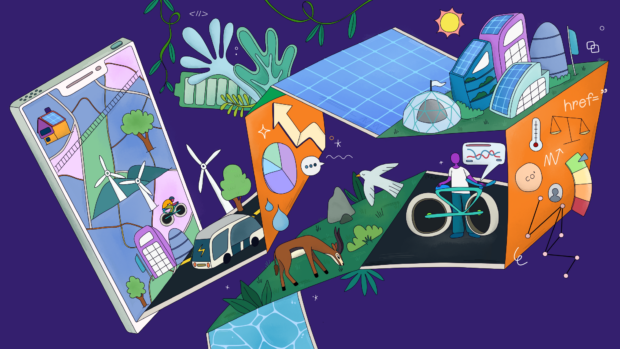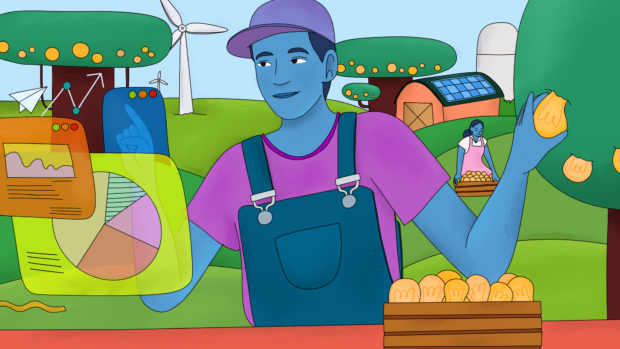Characterized by its far-reaching impacts and the urgent need for action, climate change stands as one of the biggest global challenges of our time. With stakes this high, collective action is crucial – yet underutilized. In fact, the findings of the first global stocktake at COP 28 concluded that governments all over the world need to do more.
To bridge the gap between current efforts and necessary actions, it is imperative to focus on sectors that contribute significantly to greenhouse gas emissions: energy, materials, and mobility, which accounted for approximately 34%, 21%, and 19% of total global emissions in 2020, respectively.
Data-powered solutions like smart grids and weather-pattern predictions can reduce emissions and help frontline governments and communities respond and adapt to the changing climate. But these advanced capabilities depend on seamless access to diverse data flows. Similarly, effective data sharing between stakeholders is essential for accurately tracking progress against emissions targets.
This Spotlight paper – the second in our research series – examines the potential for open transaction networks (OTNs) to support climate action by bringing together various stakeholders, systems, and datasets into interconnected, scalable, and efficient digital ecosystems. In exploring OTN examples from the energy, materials, and mobility industries specifically, we explore their ability to address critical environmental challenges.
Research Series
Following our engagement at COP28, the Digital Impact Alliance has rallied a group of partners to launch the Joint Learning Network on Unlocking Data for Climate Action (Climate Data JLN.) The Climate Data JLN brings together experts in climate action, data exchange, and digital public infrastructure to understand new models for data governance that can overcome challenges related to trusted data sharing.
This multi-disciplinary network has identified multiple promising models to explore in the context of unlocking data for climate action. The first research paper on the data trust model is published and available here.
Much of this work was inspired by the multistakeholder Green Digital Action initiative convened by the International Telecommunications Union with participation from 40+ organizations. The Climate Data JLN will deliver recommendations in time for COP29 in Baku.



